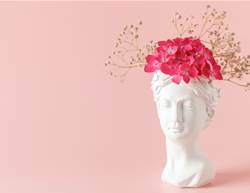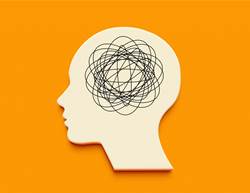Awandering mind that constantly craves its next social media fix, instead of staying the distance on the task at hand seems to be the bane of the 21st century (and not just an ageing brain!). A world filled with technology that easily distracts means that we need to work at focusing our concentration – so put away that smartphone and take a look at these suggestions to help you boost your brainpower in minutes.
Dial it to a nice 22°
Feeling too hot or too cold can be so distracting that it impairs your thinking. Studies that have measured job performance at different temperatures suggest optimal efficiency occurs at 22°. Meanwhile a Cornell University study found that increasing the temperatures in an office from under 20° to 25° led to a 44 per cent reduction in typing errors and a massive rise of 150 per cent in productivity. (Fact: offices, hotels and shopping centres worldwide are generally set to 22°).
Play your favourite song
Experts once believed classical music was best for brains, but recent research suggests that any music you enjoy has benefits. It increases concentration and productivity, simply because you like it, says neurologist Barry Jordan. Listening to a song you love lowers levels of the stress hormone cortisol, which can otherwise slow cognition, he explains.
Let the light in
Early-morning light suppresses production of the sleep-promoting hormone melatonin and syncs your body clock with the time of day, making you more alert. “Every region of the brain and body has its own inner clock,” neuro-opthalmology researcher Mithu Storoni says. Exposure to light aligns all your clocks.
Drink 2.7 litres a day
That’s the amount of water scientists say women need to stay hydrated, although much of that H2O we get via our food. Even mild dehydration can interfere with concentration, according to a Journal of Nutrition study. One classic hydration mistake: you think you’re hungry, but you’re actually thirsty, Storoni says. When a craving strikes, try drinking a glass of water – you may find that the craving fades and your thinking gets clearer.
Close your eyes
It will help you conjure up more details of what you’re trying to remember. In a University of Surrey study, people who shut their eyes answered 23 per cent more questions correctly when asked to recall a scene than did people who kept their eyes open. Researchers believe it’s easier to visualise what you saw in the past and remember it when you eliminate visual distractions. Similarly, a handwritten list is easier to remember than a typed one. Drawing works even better.









